U.S. Consul General Scott Urbom concluded a visit to Northern Sindh November 19-21, where he reinforced the United States’ continued commitment to Pakistan’s development and prosperity. From advancing education and empowering women to improving healthcare and municipal services, the Consul General highlighted the transformative impact of U.S. development initiatives in the province.
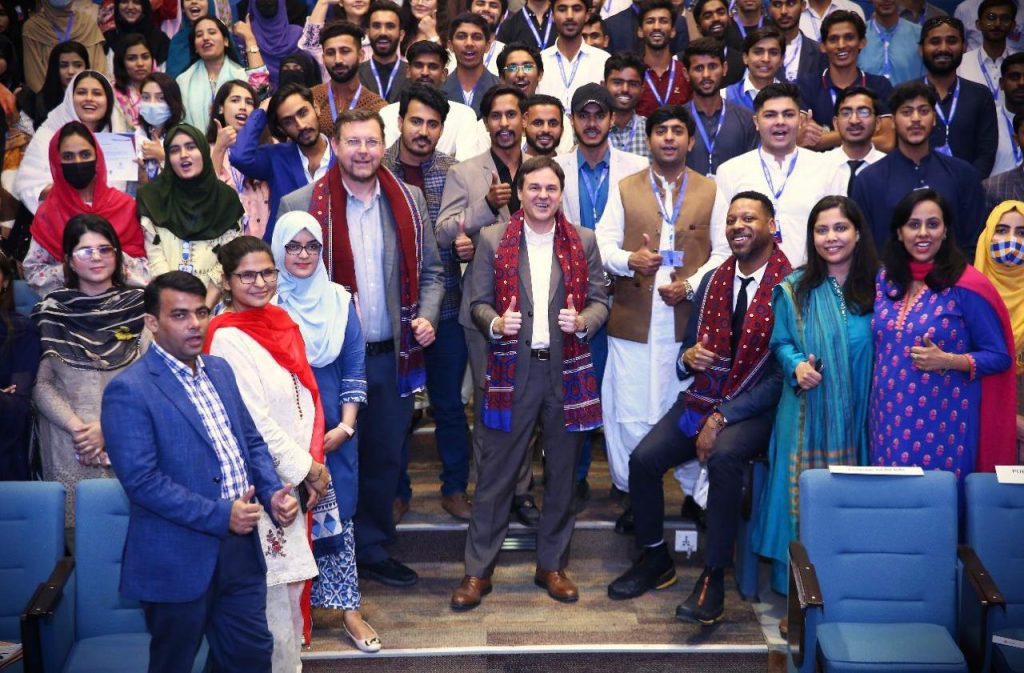
In Khairpur Mirs, Consul General Urbom inaugurated a state-of-the-art STEAM (Science, Technology, Engineering, Arts, and Mathematics) lab at the Government Higher Secondary School of Hussainabad. Developed in collaboration with The Dawood Foundation through a U.S. Consulate Public Diplomacy grant, the lab promotes hands-on learning for underserved communities. “This lab embodies the U.S. Government’s commitment to fostering creativity and equipping Pakistan’s youth with skills to shape their future,” said Urbom. The school, constructed under the USAID Sindh Basic Education Program, is one of 106 schools whose construction was funded by the U.S. government to promote quality education in Sindh.
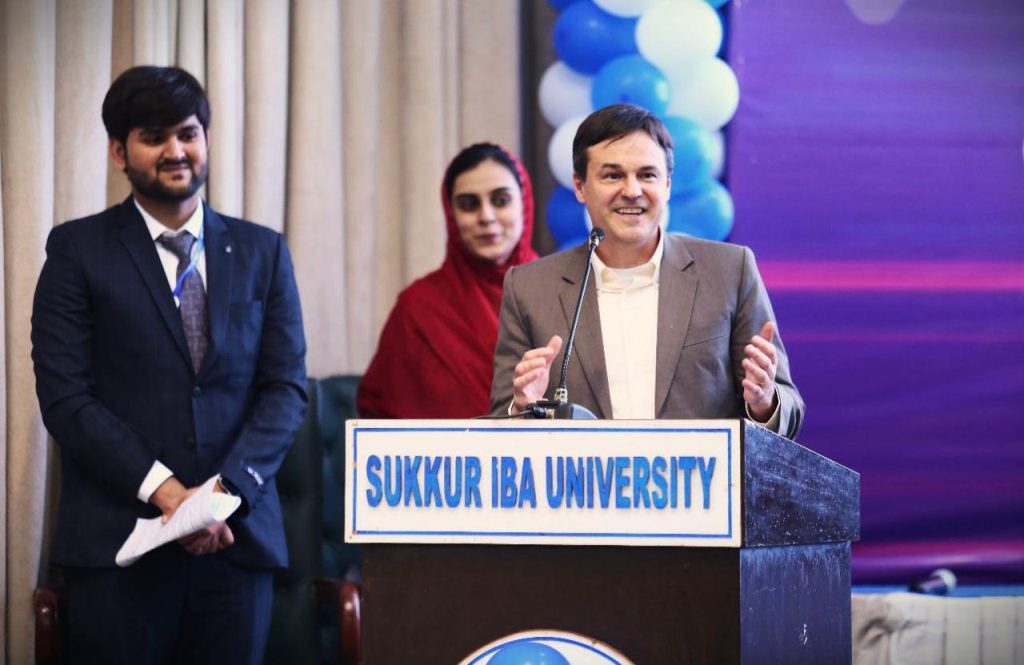
At the Sachal Sarmast Library, Urbom met alumni of the U.S. Academy for Women Entrepreneurs (AWE) program, hearing how participants from the 2022 cohort have launched successful businesses, including food and handicrafts. “Empowered women entrepreneurs are key drivers of progress, and we are proud to support programs that unlock potential and inspire leadership,” Urbom remarked.
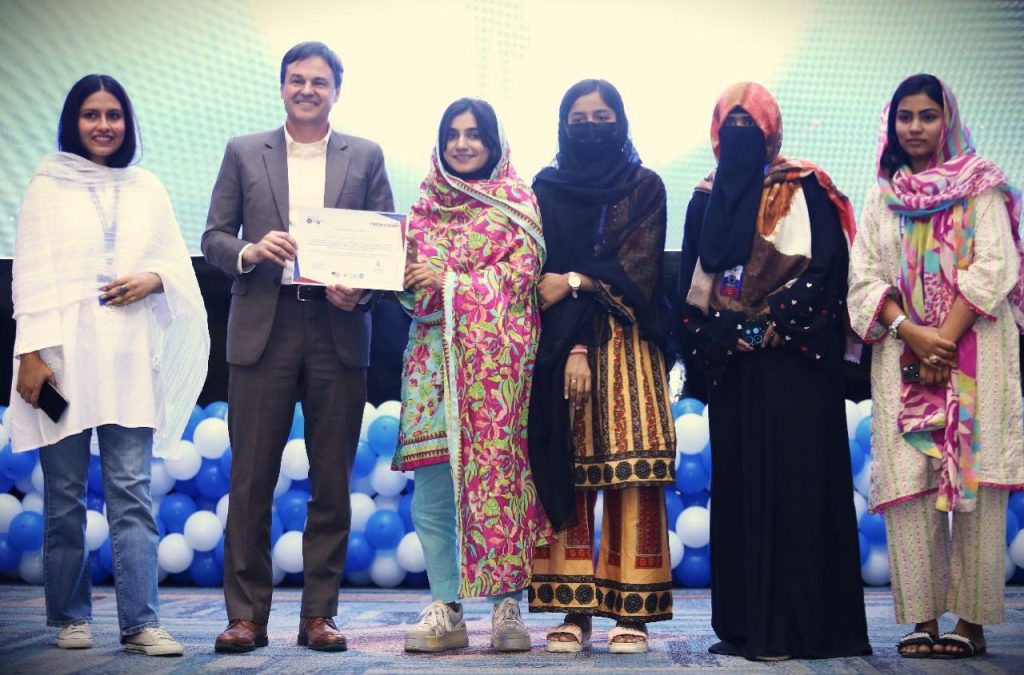
During his visit to Sukkur IBA University, Urbom met 150 students from the English Works program, which equips youth with employability and entrepreneurial skills. He applauded the program for training 375 students in Sindh and encouraged participants to embrace their roles as future leaders.
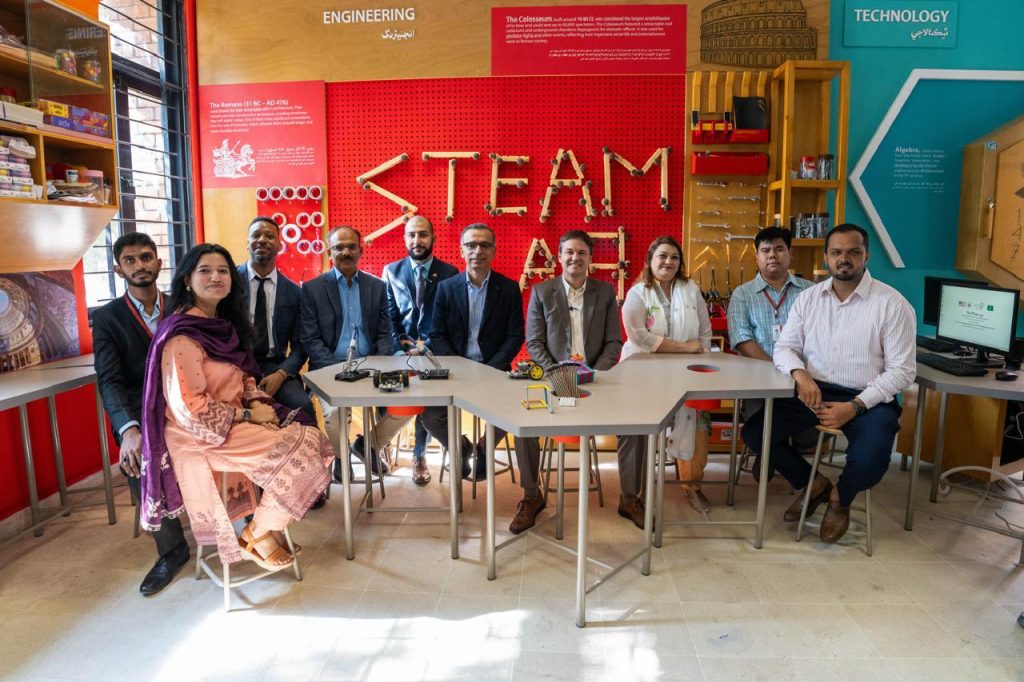
While there, Urbom also met with Vice Chancellor, Dr. Asif Ahmed Shaikh to discuss the recent U.S.-government funded partnership between Vanderbilt University and Sukkur IBA. The partnership aims to enhance STEM education at Sukkur IBA through curriculum design and pedagogy while developing the capacity of leadership and faculty at the university.

In Jacobabad, Urbom visited the USAID-funded Jacobabad Institute of Medical Sciences (JIMS), a 133-bed hospital serving over one million people. He highlighted the facility’s role in providing quality maternal and child healthcare, stating, “Together, we’re ensuring brighter futures for women, children, and marginalized communities in Pakistan.”
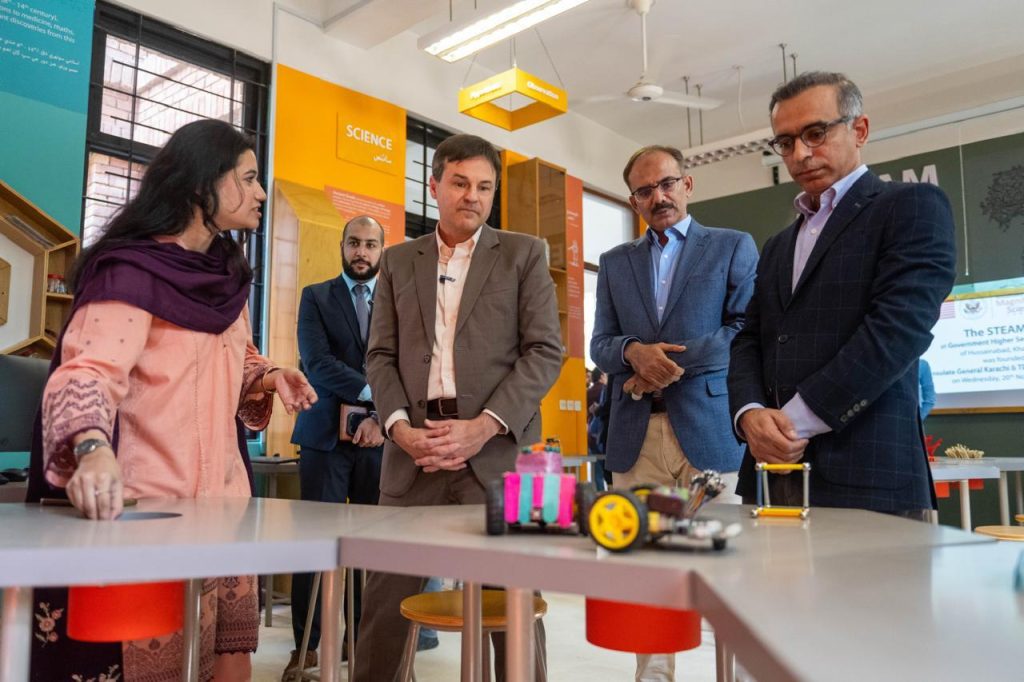
Urbom also toured a USAID-funded water filtration plant in Jacobabad, which supplies clean drinking water to over 14,000 households in Jacobabad. “Access to clean water is fundamental to health and prosperity. This plant reflects the U.S. commitment to sustainable development,” he said.
In meetings with local officials, Urbom reiterated U.S. support for municipal services, including waste management and infrastructure, and commended community efforts to sustain these investments.
These initiatives, represent continued U.S. development assistance and highlight the breadth of U.S.-Pakistan collaboration. From education and entrepreneurship to healthcare and clean water, Consul General Urbom’s engagements underscore the United States’ dedication to building a brighter, more sustainable future for all Pakistanis.

















































